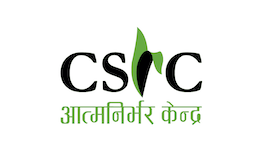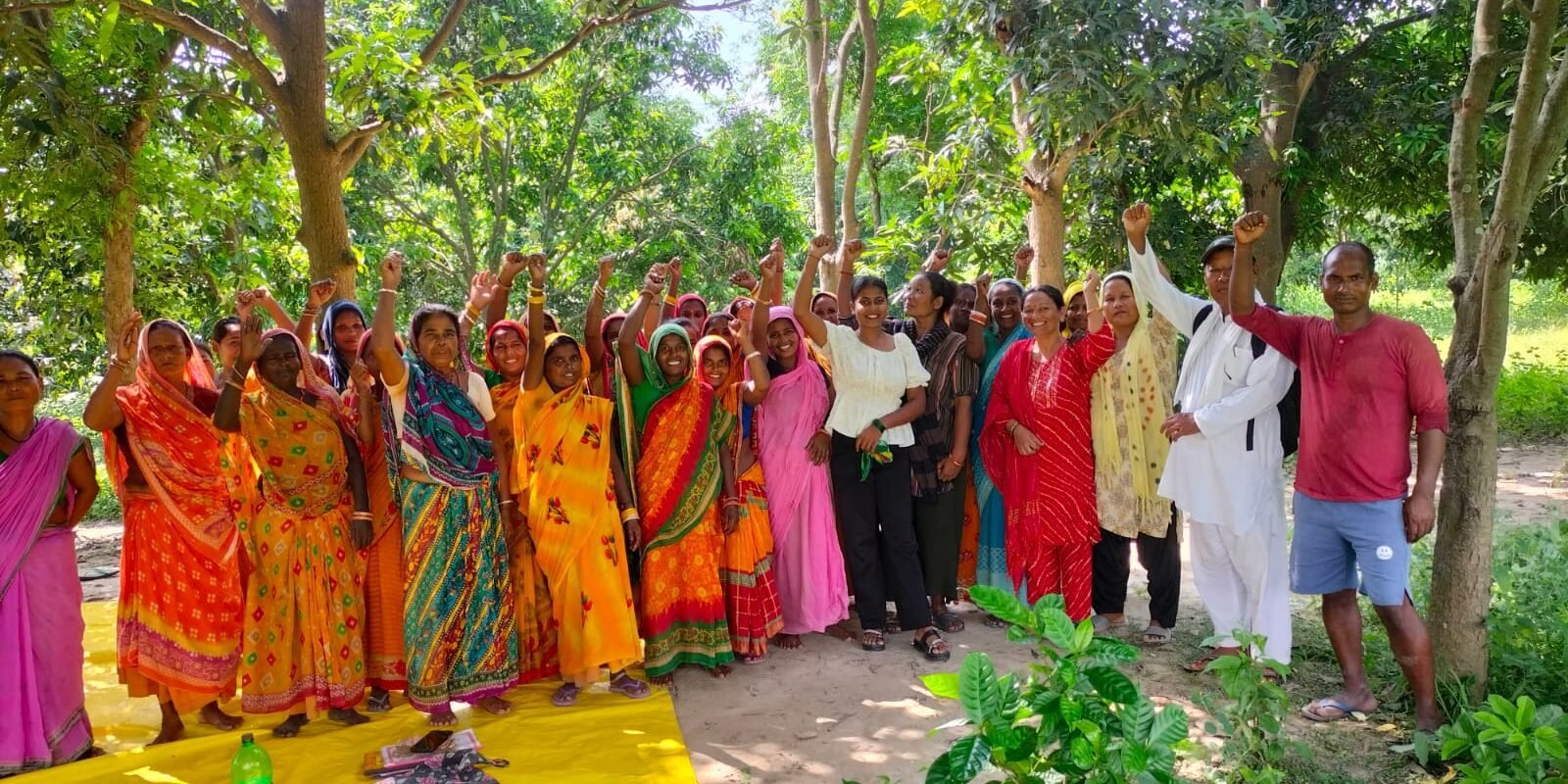
Story of the resilience of Durga Land Rights Forum:
Its ongoing impact for land rights and women
Access to the hidden voices of women—
Religion, culture, traditions, customs, climate, weather,
Earth, soil, nature, cooperation, service, humanity,
As we move forward, transforming everything into new trends,
We chant slogans, claiming to reduce poverty and social injustice
But at what level are we truly living?
Are we ourselves victims of violence and injustice, or not?
Have we also humiliated or oppressed someone?
Have we raised our voices on certain issues to bring change in society?
The question is for us.
To restore every environment we have disrupted, we established Durga Land Rights Forum in Ward No. 12, Gausala Municipality, Mahottari District, at the old Kantibazar, facilitated by the Mahottari District Land Rights Forum. Durga Land rights Forum consists of 45 members (43 Women, 2 men) including 13 indigenous people, six Dalits, and marginalized communities— the majority of whom cannot read or write. Among them, 18 are small farmers, 26 are Sukumbaasi, 11 are landless farmers and three people have a disability.
Impact of the Land Agri Circle

Members of the Land-Agri Circle meet on the first day of every month, each contributing Rs. 20 which leads to Rs. 900 collectively to the movement fund. Their commitment is unwavering, as they have never missed a single meeting on the exact date. Beyond financial contributions, the group actively engages in discussions and advocacy on various social issues within their learning circle. They particularly focus on women’s empowerment and sustainable economic opportunities. As part of their dedication to environmental responsibility, they have eliminated the use of chemical fertilizers in farming, embracing more natural and eco-friendly agricultural practices.
In their pursuit of better hygiene standards, the members approached the municipality to purchase sanitary pads for Musahari women residing in Nayabasti, ensuring access to essential health products and promoting dignity and well-being within the community.
Additionally, the forum amplifies voices against domestic violence, looting, and attacks by reaching relevant authorities and advocating for solutions. However, due to the restrictions placed on women in Madhes Province, many are forced to remain hidden, limiting their access to public opportunities and the benefits they deserve.

Even in times of need, husbands often hesitate to say, “Half of this home belongs to my wife too,” due to societal fears or disputes over property ownership.
Determined to move forward despite hardships, a group of women from the Durga Land Rights Forum sought alternative livelihoods as a means to fight poverty. In their community, they collected leftover water from a public pond and began fish farming, hoping it would provide some financial stability. Unfortunately, in September 2024, another flood struck, washing away fish worth more than NRs 150,000, destroying their anticipated income. The damage did not end there—the Pakki Bridge (Permanent Bridge) which connected New Kanti Bazaar to Old Kanti Bazaar via Sihee Road, was destroyed by the flood, cutting off essential transportation routes and halting small-scale movement in the area.
The school bus stopped coming to pick up young children, forcing the mothers to take their children to school on narrow, risky paths with heavy burdens on their backs. The damaged bridge also made it difficult to access essential goods, as the market was only accessible by crossing the broken bridge. For some families, this meant many exhausting trips daily—to drop children off at school, bring their lunch, and pick them up after school. Seeking solutions, members of the Durga Land Rights Forum organized a meeting, bringing together the mayor, ward chairperson, ward members, women leaders, and community representatives from every household. The discussion centered on the devastation caused by the floods, especially the collapsed main bridge. Ward representatives collectively agreed to advocate for land reforms as a step toward broader prosperity.

The officials pledged to rebuild the bridge, an announcement met with great joy. But as days passed, construction did not begin. Many days passed, and yet the bridge was not built. Another monsoon season approached, turning our initial joy into disappointment. We repeatedly went to the ward and municipality, demanding answers as to why construction had not started. However, despite spending money on transportation for these visits, the problem remained unsolved.
Determined to take bolder action, we made a risky decision—to go to the municipality, close its doors, and demand that all officials discuss the collapsed bridge. On 10th April 2025, 26 women gathered, reserving a vehicle and heading to the municipality office.
To our surprise, some of the women participating in the protest had never even seen the municipality office before, raising concerns about how their voices had been ignored for so long. Despite these doubts, we pressed forward. Upon reaching the municipality gate, we saw municipal police officers stationed outside. They blocked our entry, but we collectively raised our voices: “We are not just individuals—we represent an entire community with an urgent problem. Let us in!”
“For equitable prosperity, we demand land reform—until then, we will close the doors!”
And we shared our determination. Our voices could no longer be confined behind closed doors—we resolved to continue our protest until a solution was found. Shortly afterward, they arrived, and we made our stance clear:
“You cannot assess the impact of a collapsed bridge by sitting in your office. Walk with us and see for yourself.”
To our great satisfaction, we succeeded in bringing the Mayor along, which felt like a significant achievement. At the site of the broken bridge, a larger discussion unfolded with the Mayor, local officials, and women leaders from Durga Land Rights Forum. Finally, the Mayor pledged to construct a new bridge, and as an immediate step, ordered a bulldozer to clear temporary pathways, ensuring safe pedestrian movement and the return of the school bus.
Soon after, the Mayor announced an allocation of NRs 2,000,000 for the construction of a new bridge to replace the collapsed one. This news filled us with immense joy. Again, we advocated for women’s leadership in the Users Management Committee for bridge construction. Construction soon began, and a new bridge is now being built.
We may be landless, but we are hardworking. Even without agricultural land of our own, we work as wage laborers on others’ farms. Despite this, we grow pesticide-free vegetables on the small plots around our homes, sustaining ourselves.
As a community, we have come together to improve roads, agriculture, sanitation, and healthcare. With the training and support from the District Land Rights Forum and CSRC, we have gained skills and confidence to continue demanding our rights and moving forward with determination.
Story by: Dina Karki
Translated and edited by: Knowledge Management & Communication Unit







